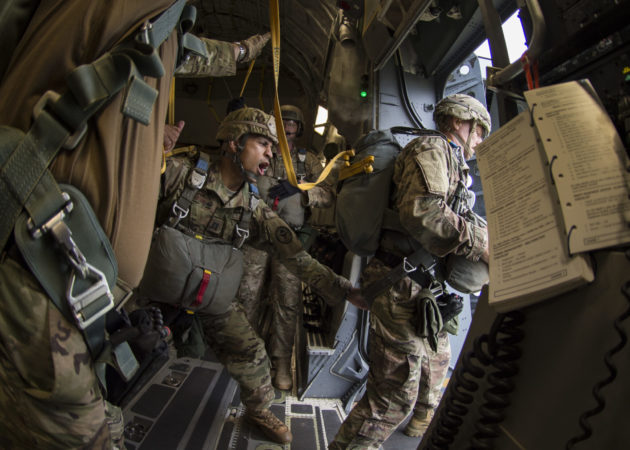While the Russian military has been largely ignoring the costly lessons learned on the ground in Ukraine as the continue to struggle in a bloody stalemate, the US military, especially the Special Operations Command (SOCOM), is paying close attention.
And the war in Ukraine will change the way American special operators fight wars in the future. SOCOM has been heavily focused on counterterrorism for more than two decades since the days immediately following 9/11. That focus is shifting into what Rear Admiral Hugh Howard, the commander of the Navy’s Special Warfare characterized a few weeks ago as the “fifth modern era” for special operations forces.
And among the lessons learned that SOCOM is taking from Ukraine, thus far are some new developments as well as some of the oldest tenets or “truths” that are the principles of all of the US Special Operations forces.
SOF Truths #1 Humans Are More Important Than Hardware:
The war in Ukraine has shown that the continuing and long-term international partnerships that the US special operators have worked to build over decades of training and fighting around the world been invaluable and will continue to be paramount in the years to come.
Testifying before the Senate Armed Services Subcommittee on Emerging Threats and Capabilities in late April, Army Lieutenant General Jonathan Braga of the Army Special Operations Command (USASOC) said the relationships built not only need to be maintained but expanded across Eastern Europe.
“With the scale and scope of the threat of Russia and China, we won’t be able to do this alone,” Braga was quoted by Defense One. “That’s why I talked about our international partners and how increasing their capacities and their capabilities is so critical.”
Speaking about how the numerous Special Operations Forces from different countries have banded together over the war in Ukraine has been a key factor, he said.
“I won’t name the number right now, but they have absolutely banded together…And I think that really bore out from the last 20 years of working together, sweating together, bleeding together on different battlefields, on different continents,” Braga added.
Drone Operators, A Career Specialty Within SOCOM?
During the wars in Iraq and Afghanistan, the US ruled the sky and our adversaries had little to no combat airpower to speak of. That included the use of Unmanned Aerial Vehicles (UAVs) or drones. That won’t be the case in future conflicts as even off-the-shelf commercially available drones have been widely used in Ukraine and will be a fixture on any battlefield.
USASOC is contemplating discontinuing the practice of having a drone operator as an additional duty, but actually creating an MOS for it, and possibly a separate career field within special operations dedicated to drone operations so that it’s “not just an additional duty, it’s an actual specialty,” Braga said.
During the on-going Special Operations Forces Industry Conference (SOFIC 2022) that ends on Thursday, SOCOM commander, Army General Richard Clarke said that the command is looking hard at which drone systems need to be kept and which ones need to go.
“We need to look hard at all those systems and go, which ones within our enterprise are the biggest bang for the buck? And which ones do we need to retain? And which ones do we actually need to cut away?” Clarke said on Tuesday at SOFIC.
Contested Communications, Counter-Drone/IED Operators:
Also, during the SOFIC conference, a Marine Corps Special Operations Command officer told Marine Corps Times that SOCOM needs a small device that can both jam radio frequencies to disrupt roadside bombs from exploding as well as neutralize drone threats by land, air and sea.
This is another hard lesson that the Russians have yet to learn from during their invasion of Ukraine. Their secure communications have been severely lacking and they’ve had to resort to the use of walkie-talkies as well as cell phones. And the Ukrainians have exacted a heavy toll on many of their senior officers because of it.
SOCOM is also working on an unmanned counter-drone system that will have a multimission domain. SOCOM has one system called MODI right now but is working on a next-generation system that is more man-portable.
US SOF Applying Ukrainian Lessons Learned To Its Own Future Strategy | SOFX


Leave a Reply
You must be logged in to post a comment.